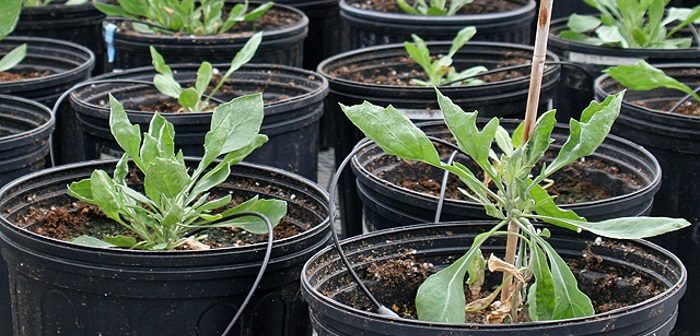A US Department of Agriculture (USDA) team has developed an improved variety of guayule plant as a natural source of tyre rubber, using biotech tools
Chemist Colleen McMahan achieved the technological feat together with molecular biologists Grisel Ponciano, Niu Dong and Dante Placido and technician Trinh Huynh—all with USDA’s Agricultural Research Service (ARS) in Albany, California. Last year, they delivered more than 3,000 experimental guayule plants to their research partner, Bridgestone Americas, for field testing.
Rubber is usually made from petroleum or from the Asian rubber tree plant. But rubber can also come from a domestic plant called “guayule.” A woody desert shrub cultivated in the southwestern United States, guayule is a natural source of rubber (latex), organic resins and high-energy biofuel feedstock.
In 2013, Bridgestone Americas and the ARS Bioproducts Research Unit in Albany began a research agreement to evaluate ARS’s genetically improved guayule. The genetic modification increased rubber content dramatically in both laboratory and greenhouse trials, according to McMahan. Their work with Bridgestone has allowed them to evaluate the plants and test them in the field.
The long-term goal is to supplement current guayule germplasm collections with plants that have important traits such as drought and disease resistance. In a separate project with Cornell University, McMahan’s team sought guayule types that weren’t already in ARS’s collection.
One source was the National Park Service’s Manzanar Historic Site in Independence, California. An internment camp for Japanese-Americans during World War II, Manzanar was also the site where guayule plants were selected, bred, cultivated and processed into natural rubber to aid the war effort. The park donated seed from its heirloom plants.
According to Huynh, the experimental guayule plants have unique DNA modifications that may translate into increased rubber and biomass. Bridgestone America is growing and evaluating the plants in their Eloy, Arizona, facilities.
The picture shows guayule plants in an ARS research greenhouse.




